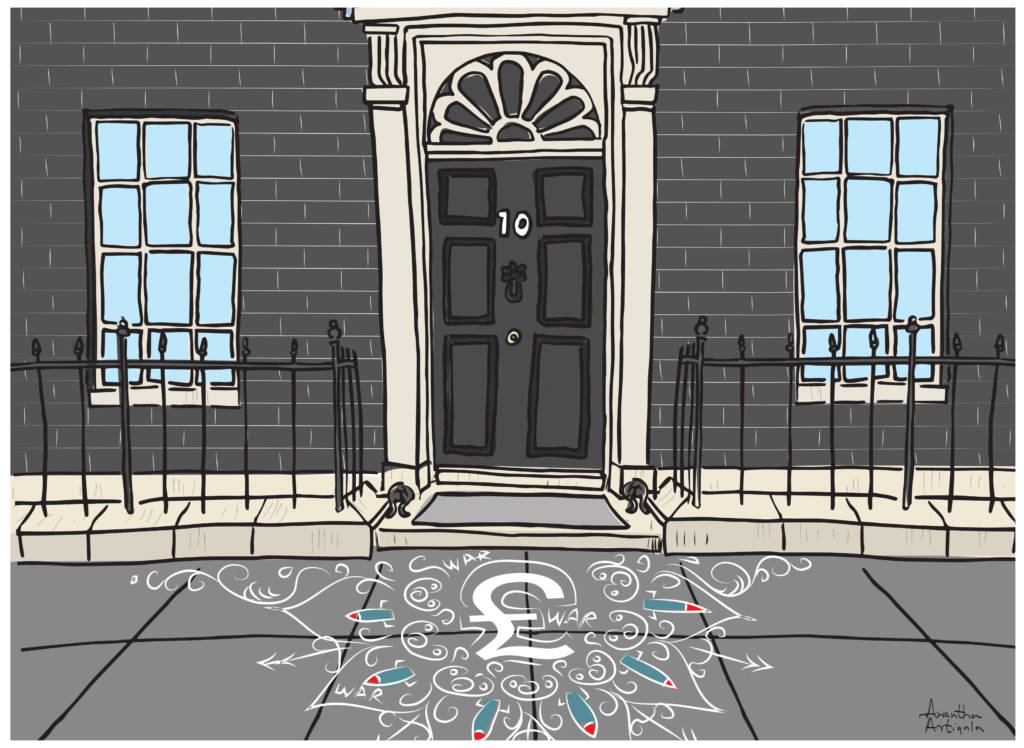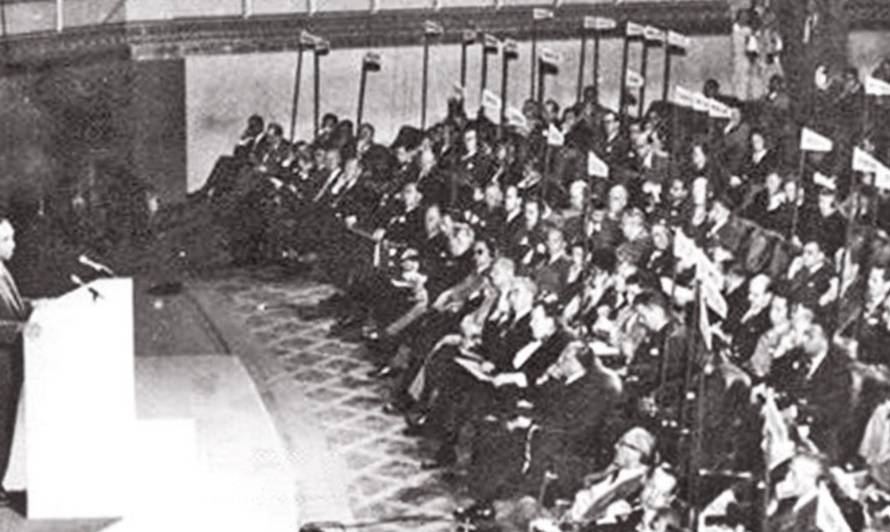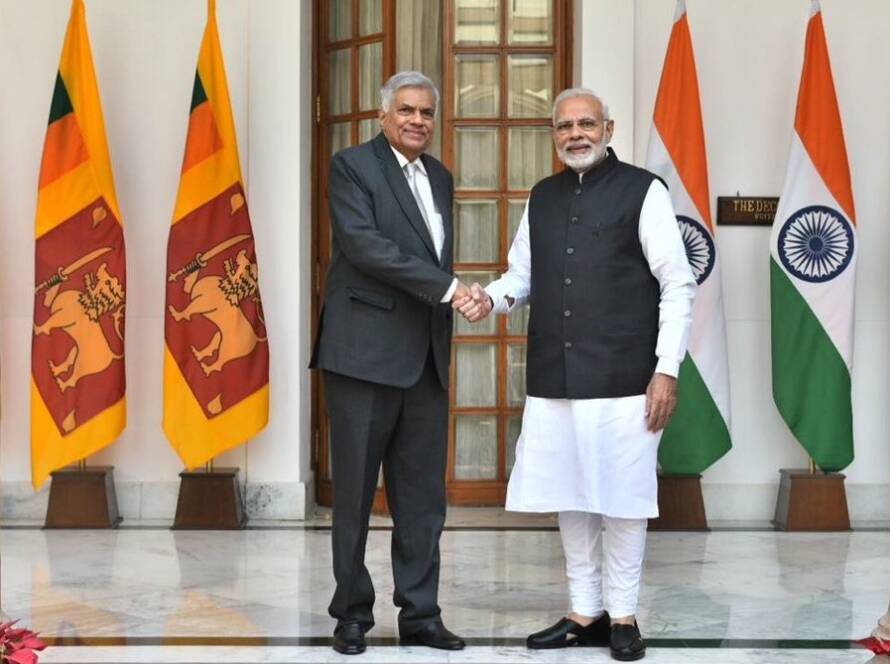
By Uditha Devapriya
Though he lacks a popular mandate and the Opposition, plus some in his own party, are calling for an election, Rishi Sunak has forged ahead to create history. He is not Britain’s first ethnic minority Prime Minister, but he is the first Asian and the first “colored” person to hold the post. He is not the first “South Asian” to hold a senior position in the Conservative Party, but he is the first to lead it. He is also the first British Prime Minister to be wealthier than the monarchy. This, in a country that equated Indians with dogs and banned both from its clubs a century ago, a country whose most beloved Prime Minister is reported to have said that “all Indian leaders will be of low caliber and men of straw.”
Sunak oversees what can only be described as a Herculean task. The Conservatives have been in power since Gordon Brown left in 2010, longer than almost any other party in a Western democracy over the last 20 years. Yet it has undergone convulsion after convulsion. The economy is in its worst shape in living memory. The pound has depreciated to its lowest level against the US dollar since 1985. Negotiations over Brexit are yet to end. Ruling party MPs have split on a number of issues and these have divided the Labour Party as well. There is no consensus on anything. Sunak’s task, in this respect, is to unify the Party and lead the country. What he does will obviously be under scrutiny.
So will what he is. Sunak’s appointment has not garnered the kind of praise that Barack Obama’s election did, but the congratulatory messages, from world leaders and more so historians and political commentators, have emphasized the obvious. India’s Prime Minister Narendra Modi did not wait until Sunak was confirmed as Prime Minister by Charles III to tweet his wishes. He viewed Sunak’s ascent as an opportunity to strengthen relations with Britain. The US, Canada, France, Germany, and Italy have all followed suit. US President Joe Biden was probably still getting used to Sunak’s name when he mispronounced it as “Rashi Sanook”, but he called the appointment “ground-breaking” all the same.
Others have been more forthcoming. William Dalrymple, for instance, hardly a fan of Sunak’s party or his Cabinet, has noted his appointment as progressive. Shashi Tharoor contends that Sunak’s rise is a tribute to the British political system’s objectivity and fairness, and its privileging of competence over color, as well as a rejoinder to the majoritarian politics of the BJP. Hindu nationalists themselves see Sunak as another example of what they can do and achieve abroad.
It’s difficult to square all this fanfare with Sunak’s actual background, though much of it is justifiable. For instance, the hype over his Indian origins misses the fact that Sunak wasn’t born in India: his parents and grandparents hail from Africa. Optimistic though many have been about his origins, even those welcoming him have sounded caution: “It’s good overall and our representation matters,” says British-Punjabi writer Santhnam Sanghera, “but it’s only part of the battle.” For Sanghera, Sunak’s “visible minority” credentials serve to mask the politics of conflict and exclusion associated with the Conservative Party.
But the Conservative Party itself has been changing, at least since David Cameron changed its electoral strategies in 2015 and explicitly called for a British Asian in his post. So have the political affiliations of most British South Asians. While 50 years ago, when Enoch Powell gave impetus to a campaign against South Asian and African immigration, British Indians and British Pakistanis were more likely to vote for Labour, today they are increasingly tilting to the Conservatives. Several factors explain this shift, including the relative affluence of these communities vis-à-vis other minorities, and the Asian emphasis on tradition and conformity, seen as sharing more with Conservative than with Labour values.
Sunak is now leader of a party that counts not one, but two South Asian and “Indian” woman MPs. Yet both have backed rather questionable policies: as Home Secretary, Priti Patel finalized a controversial asylum plan that led The Guardian cartoonist Steve Bell to compare her to Powell, and as her successor, Suella Braverman railed against a proposed India-Britain trade deal on the grounds that it would swell Indian immigration. Braverman has gone on record praising the British Empire for reasons reminiscent of Dinesh D’Souza’s defense of European colonialism. These MPs, moreover, have frequently invoked Margaret Thatcher, hardly a figure beloved or celebrated by minority groups.
This may puzzle some, but it should not. Some commentators have noted that though it has welcomed several minorities – not just South Asians – to its upper ranks, the Conservative Party has not shed off its divisive politics. Most of these South Asian entrants, barring a few like Sajid Javid, the former Chancellor of the Exchequer, have wealthy family backgrounds and connections. Braverman, Patel, and of course Sunak hail from this class, educated at the best public schools and the best universities. As one commentator put it on Twitter, “How many South Asians… have a £700+ million personal fortune?”
The question, in that sense, is about what trumps what: skin-deep ethnicity, or social class. Writing in The Guardian, Pankaj Mishra calls Sunak “a human pinstripe rather more than the devout Hindu in loincloth.” Mishra argues that Sunak’s premiership should be welcomed as progressive, for a country reeling from a colonial past, but adds that this will not conceal the politics of class which many still link to the Conservative Party.
The contradictions at the heart of South Asians in Britain are economic: some groups, like Pakistanis, occupy the lowest income quintiles, while others, primarily Indians, occupy the highest. From their sub-proletarian position, writes the anthropologist Roger Ballard, groups such as Gujaratis and Punjabis, who made their way from East Africa, “led the way upwards and outwards”, to the extent that a Joseph Rowntree Foundation study in 2007 found that British Indians were among the least poor communities in the UK. Interestingly enough, as Guy Peters and Patricia Davis have pointed out, even while minority groups clashed with the police over Margaret Thatcher’s policies in the 1980s, Indian-Pakistanis clashed with other groups, like West Indians, that resented their hold over business and trade.
These nuances have been lost in the morass of praise that has overwhelmed Rishi Sunak’s premiership. Barack Obama courted much more praise in 2008, perhaps because he hailed from a party associated with pro-minority, anti-racist, and anti-privilege politics, never mind the veracity of such descriptions. In Britain and in India, Indians have welcomed Sunak. Not a few among them have begged to differ. Yet Sunak hails from a party that hardly enjoys the reputation of the Democrats in the US. Perhaps it is this which has tempered the inevitable congratulatory remarks and tweets. That, and the fact that unlike Obama, who won not one, but two elections, Sunak remains as unelected as his three predecessors.
Uditha Devapriya is the Chief Analyst – International Relations at Factum and can be reached at uditha@factum.lk.
Factum is an Asia-Pacific focused think tank on International Relations, Tech Cooperation and Strategic Communications accessible via www.factum.lk


